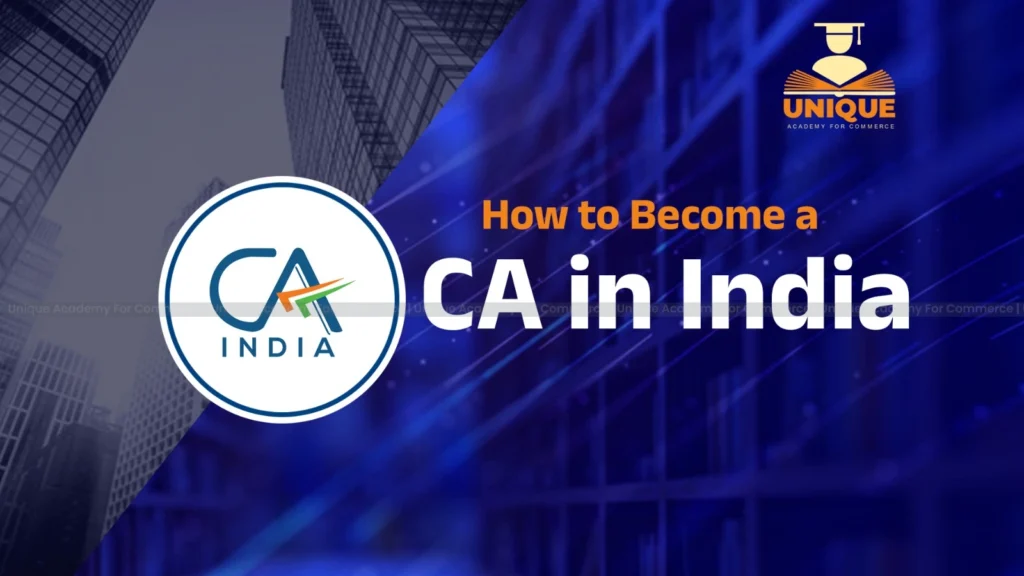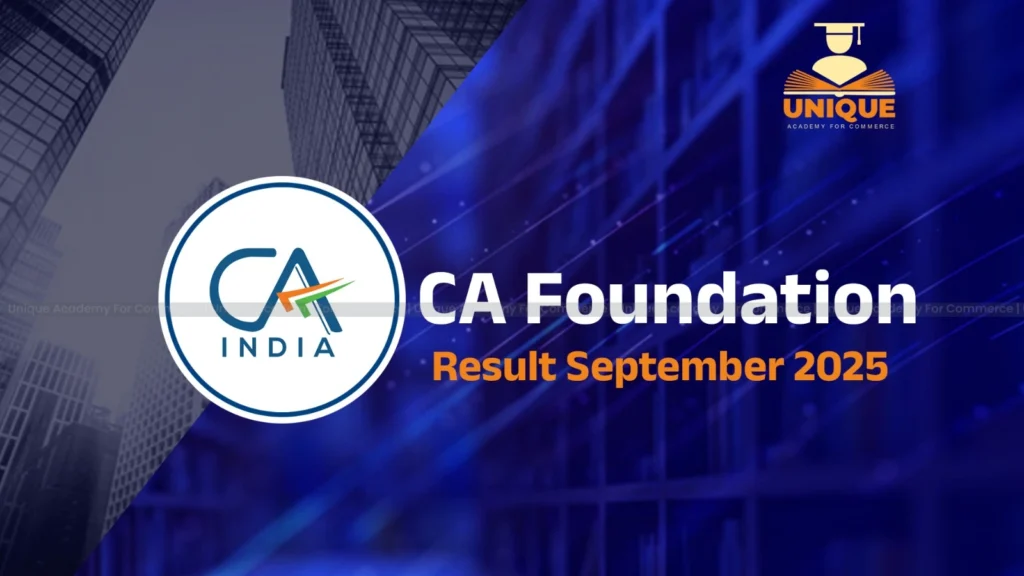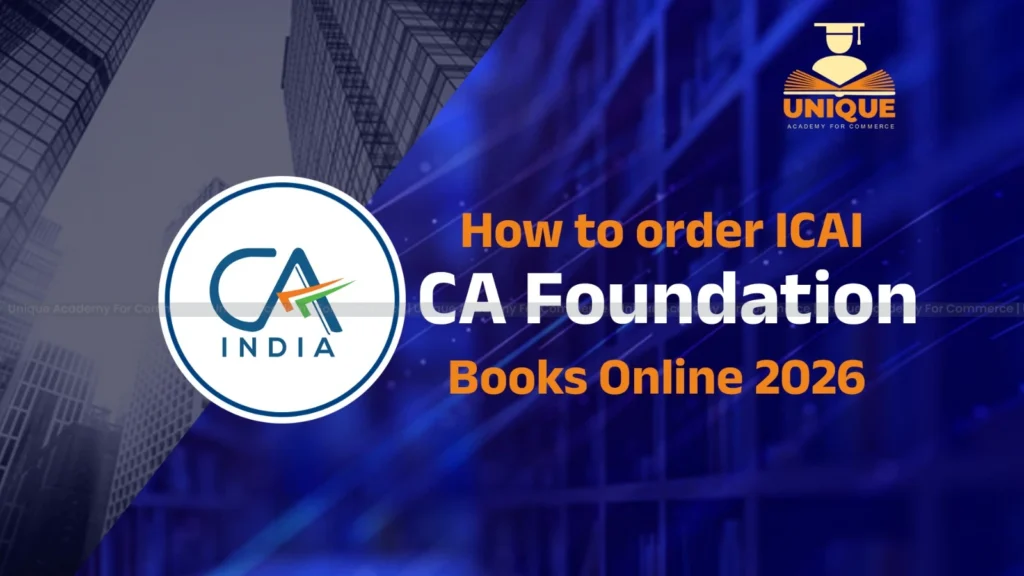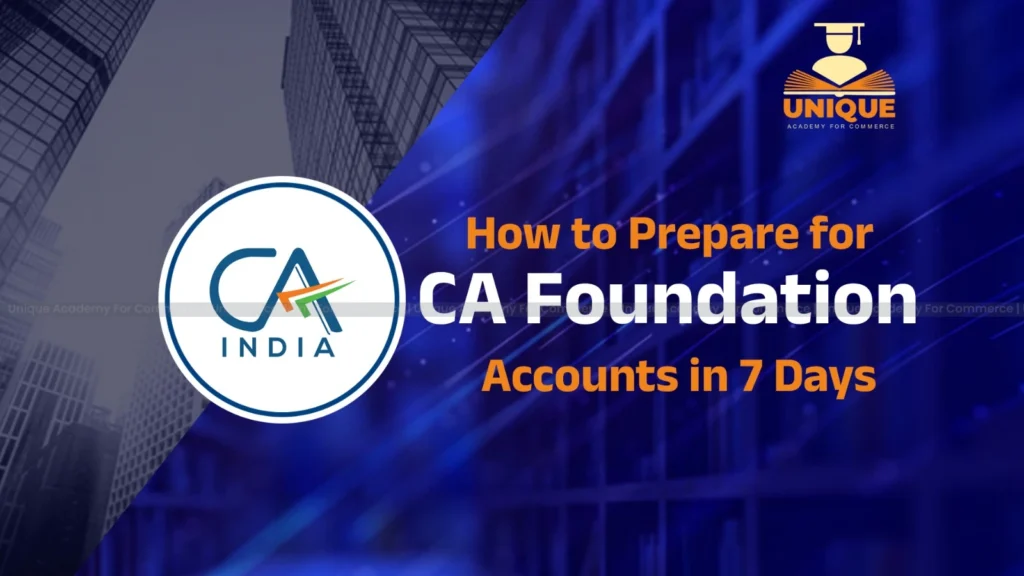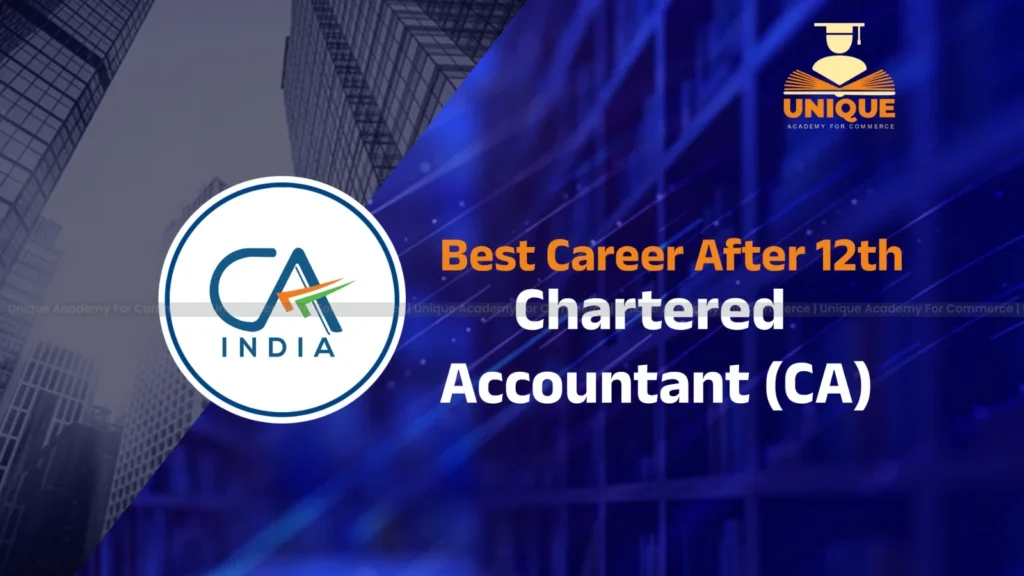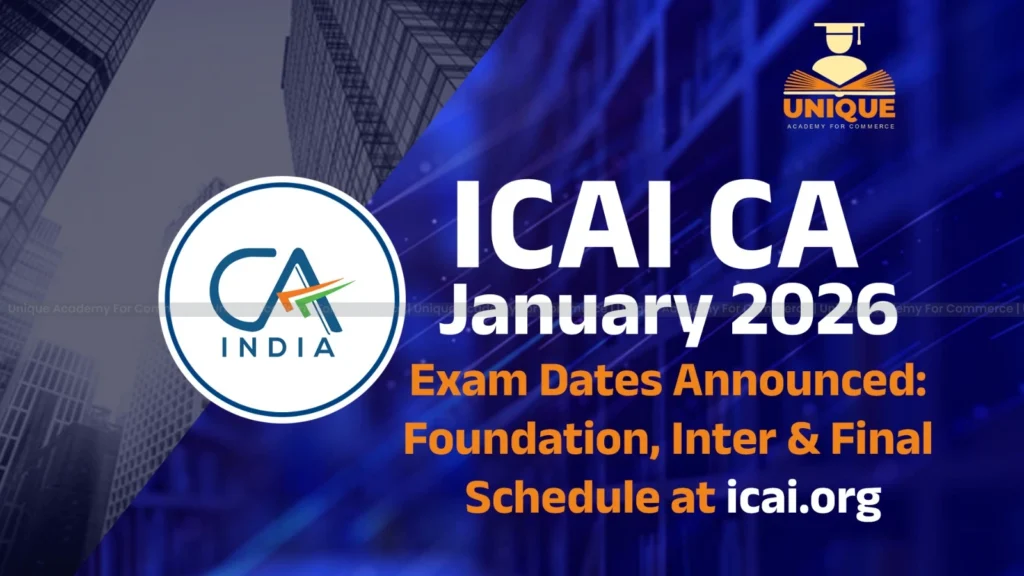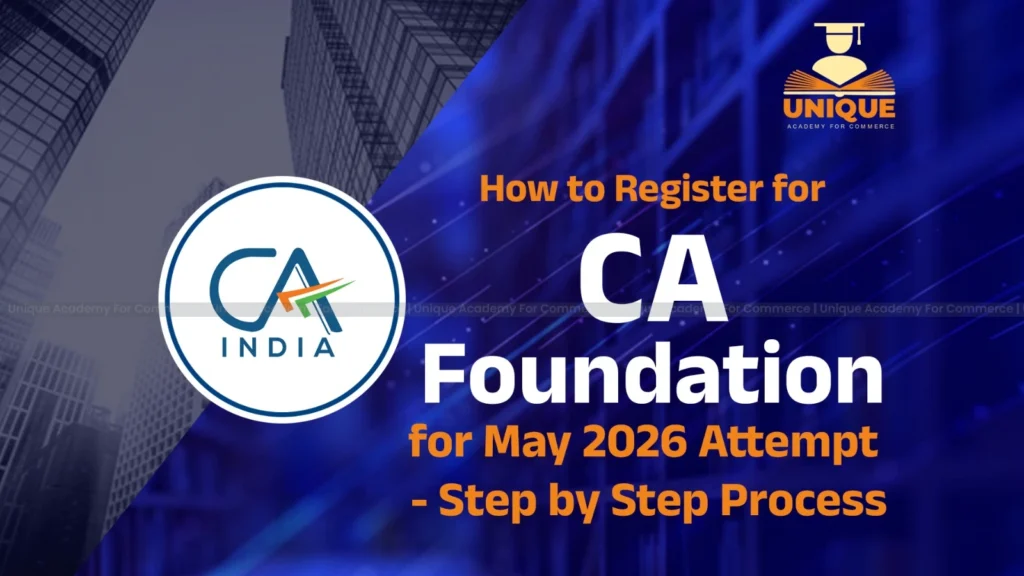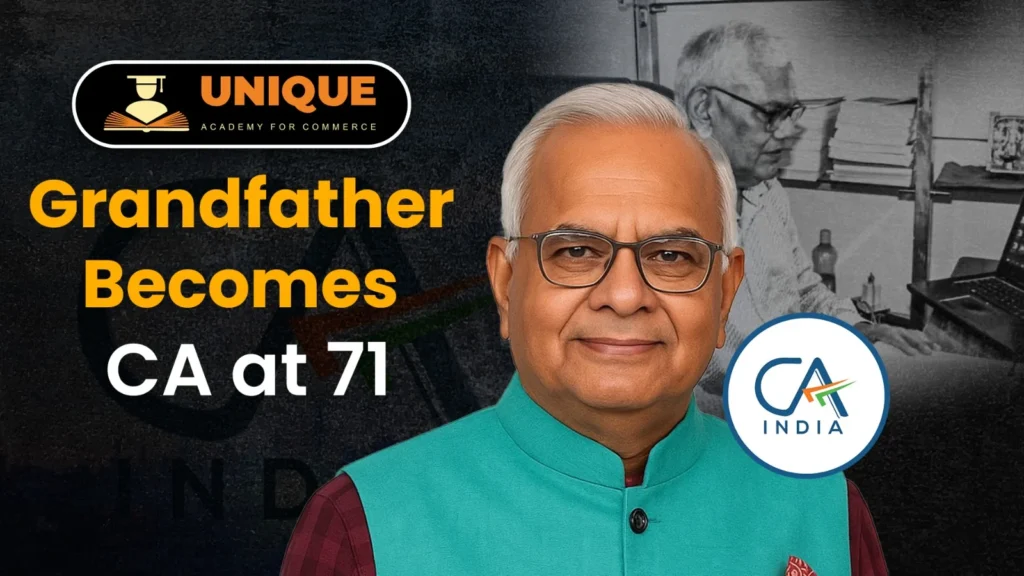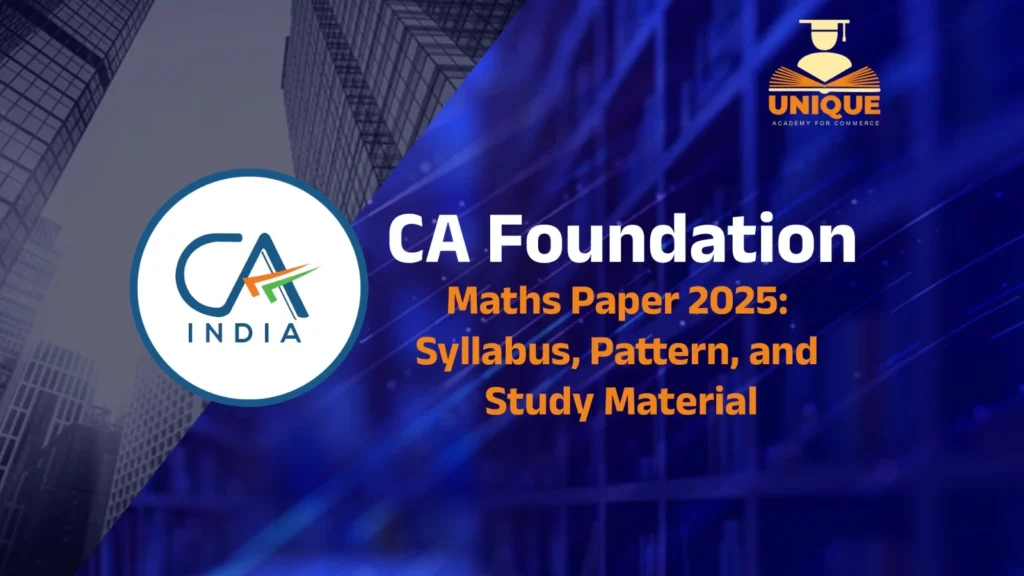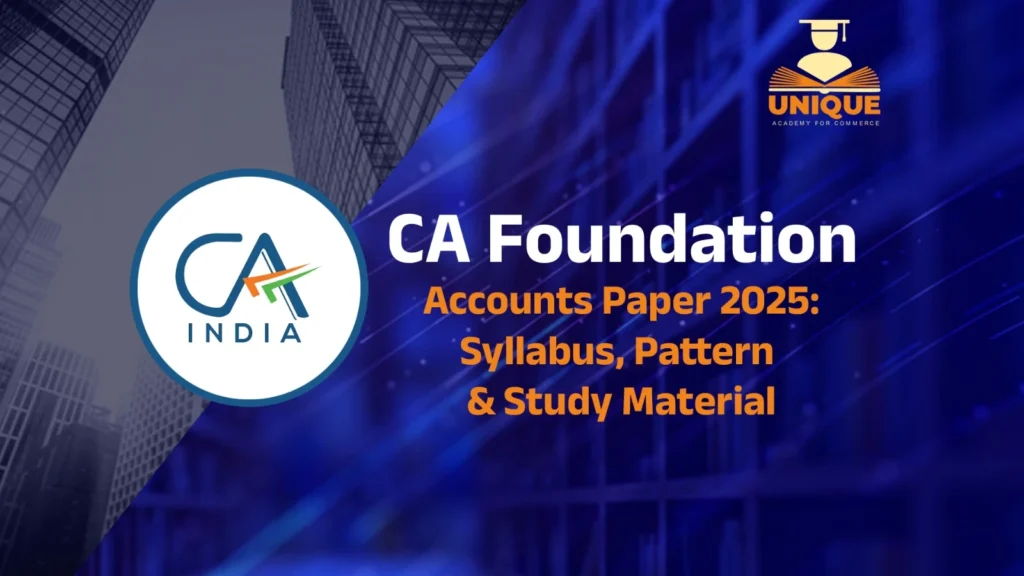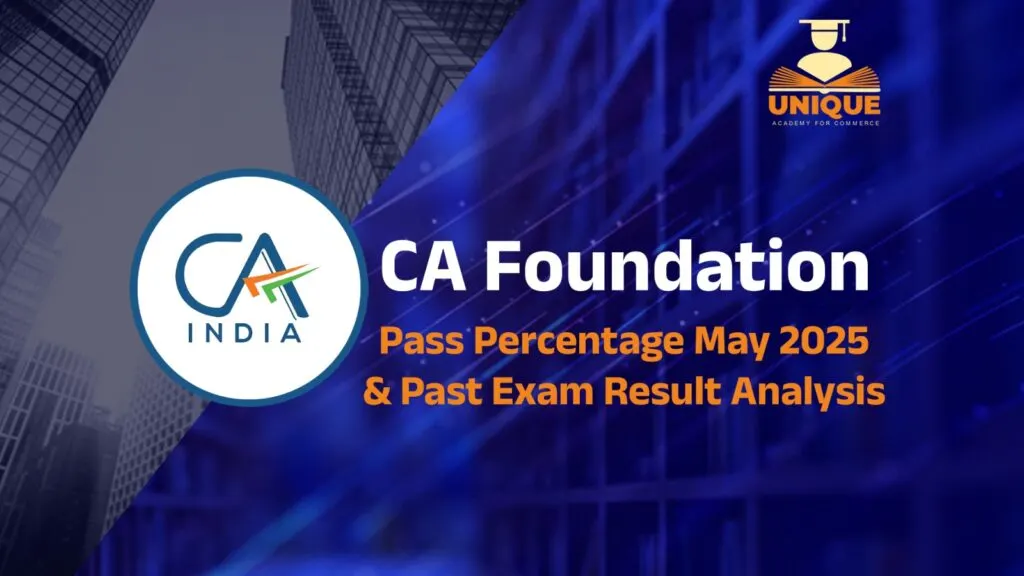CA Foundation Exam Form Correction Window for May 2025 Exam

CA Foundation examination will be conducted on May 15, 17, 19 and 21, 2025. Admit card for the same will be made available likely in the second week of April 2025. CA Foundation admit card will be made available online at the e services website of ICAI.
The registration process for the CA Foundation May 2025 examination began on March 1 and closed on March 17, 2025. The form correction window remained open from March 18 to March 20, 2025.
CA Foundation is the initial level of the course for Chartered Accountancy profession in India. Organized and governed by the Institute of Chartered Accountants of India (ICAI), the CA course makes sure that a chartered accountancy candidate gets trained in all the areas of accounting and taxation applicable for leading a business organisation to operate smoothly within the legal framework.
According to the University Grants Commission (UGC), qualification in CA is considered as a postgraduate degree. CA exam is carried out in three different levels according to the CA courses. To become certified as a Chartered Accountant, candidates need to pass all the course levels. CA courses are mentioned below from first to third:
- CA FOUNDATION
- CA INTERMEDIATE
- CA FINAL
CA Foundation course examination (4 papers)
CA Intermediate exam (6 papers from New Syllabus and Old Syllabus)
CA Final exam (6 papers from New Syllabus and Old Syllabus)
ICAI Exam 2025 Dates & Schedule

Take a look at the table below for the complete schedule of CA Foundation 2025 exam
| 5 May ‘ 25 | CA Foundation May 2025 Paper I |
| 17 May ‘ 25 | CA Foundation May 2025 Paper II |
| 19 May ‘ 25 | CA Foundation May 2025 Paper III |
| 21 May ‘ 25 | CA Foundation May 2025 Paper IV |
Past important dates:
| Dates | Past Exam Dates |
| 18 Mar ‘ 25 – 20 Mar ‘ 25 | CA Foundation May 2025 form correction |
| 15 Mar ‘ 25 – 17 Mar ‘ 25 | CA Foundation May 2025 registration with late fee |
ICAI CA Foundation Exam Timings for May 2025
This is the table for CA Foundation exam timings:
| CA Foundation Exam Papers | Exam Timings |
| Paper 1st and 2nd | 2 PM to 5 PM |
| Paper 3rd and 4th | 2 PM to 4 PM |
Come on, join the CA Foundation Free Batch now.
ICAI CA Foundation Eligibility Criteria 2025
One becomes eligible for the CA Foundation course after Class 12. The best stream of study is Commerce. Candidates appearing for admission to the CA Foundation course should satisfy course-wise eligibility criteria as laid down below:
CA Foundation Eligibility Criteria
Candidates who have passed Class 12 or equivalent exam of the Central or State Board of Education.
Candidates who have Enrolled with the Board of Studies on or before 30 June of the year of CA Foundation examination
Changed to CA Foundation Course with Board of Studies of ICAI on or before September 7 of the year of examination.
CA Foundation Syllabus for May/September 2025 (New Scheme)

Paper 1: Principles and Practice of Accounting
Module 1:
Theoretical Framework
- Meaning and Scope of Accounting
- Accounting Concepts, Principles, and Conventions
- Capital and Revenue Expenditures and Receipts
- Contingent Assets and Contingent Liabilities
- Accounting Policies
- Accounting as a Measurement Discipline – Valuation Principles and Accounting Estimates
- Accounting Standards
- Accounting Process
Basic Accounting techniques – Journal Entries, Ledgers, and Trial Balance
- Subsidiary Books
- Cash Book
- Rectification of Errors
- Bank Reconciliation Statement
Inventories
Depreciation and Amortization
Bills of Exchange and Promissory Notes
Preparation of Final Accounts of Sole Proprietors
- Final Accounts of Non-Manufacturing Entities
- Final Accounts of Manufacturing Entities
Module 2:
8. Financial Statements of Not-for-Profit Organizations
Accounts from Incomplete Records
Partnership and LLP Accounts
- Introduction to Partnership Accounts
- Treatment of Goodwill in Partnership Accounts
- Admission, Retirement, and Death of a Partner
- Dissolution of Partnership Firms and LLPs
Company Accounts
- Introduction to Company Accounts
- Issue, Forfeiture, and Re-Issue of Shares
- Issue of Debentures
- Accounting for Bonus and Rights Issues
- Redemption of Preference Shares and Debentures
Paper 2: Business Laws and Business Correspondence
Section A: Business Laws
- Indian Regulatory Framework
- The Indian Contract Act, 1872
- Nature of Contracts
- Consideration
- Essential Elements of a Contract
- Performance of Contract
- Breach of Contract and Remedies
- Contingent and Quasi Contracts
- Contracts of Indemnity, Guarantee, Bailment, and Pledge
- Agency
The Sale of Goods Act, 1930
- Formation of the Contract of Sale
- Conditions and Warranties
- Transfer of Ownership and Delivery of Goods
- Rights of an Unpaid Seller
The Indian Partnership Act, 1932
- General Nature of Partnership
- Relations of Partners
- Registration and Dissolution of a Firm
The Limited Liability Partnership Act, 2008
The Companies Act, 2013
The Negotiable Instruments Act, 1881
Paper 3: Quantitative Aptitude
Part A: Business Mathematics
- Ratio and Proportion, Indices, and Logarithms
- Equations
- Linear Inequalities
- Mathematics of Finance
- Basic Concepts of Permutations and Combinations
- Sequence and Series – Arithmetic and Geometric Progressions
- Sets, Relations, and Functions
- Basics of Limits and Continuity, Differential and Integral Calculus
Part B: Logical Reasoning
- Number Series, Coding and Decoding, and Odd Man Out
- Direction Tests
- Seating Arrangements
- Blood Relations
Part C: Statistics
- Statistical Representation of Data and Sampling
- Measures of Central Tendency and Dispersion
- Probability
- Theoretical Distributions
- Correlation and Regression
- Index Numbers
Paper 4: Business Economics
Introduction
- Basic Problems of an Economy
- Role of Price Mechanism
Theory of Demand and Supply
- Law of Demand and Elasticity of Demand
- Theory of Consumer Behaviour
- Supply
- Theory of Production and Cost
Theory of Production
- Theory of Cost
Price Determination in Different Markets
Meaning and Types of Markets
- Determination of Prices and Output in Various Market Forms
Business Cycles
Determination of National Income
- National Income Accounting
- Keynesian Theory of National Income
Public Finance
- Fiscal Functions, Centre and State Finance
- Market Failure and Government Interventions
- Budgeting, Revenue, and Public Debt Management
Fiscal Policy
- Money Market
- Theories of Money Demand and Supply
- Monetary Policy
International Trade
- Theories and Instruments of Trade Policy
- Trade Negotiations
- Exchange Rates and Economic Effects
- International Capital Movements
Indian Economy
- Insights into budget-making, fiscal functions, and revenue/expenditure management.
- Role of economic reforms in India’s development.
Tips for preparation:
1. Listen to your presentation: What really happens is that ICI gives you suggested answers, and your paper is matched against it. They see how different your answers are from the suggested ones. If you’re right, you get a tick; otherwise, marks are reduced. So, you need to listen to your presentation.
2. ABC analysis: Appropriate ABC analysis of the whole syllabus: conducting ABC analysis helps to screen the relevant parts of the syllabus, but don’t exclude the totally undisclosed parts.
3. Don’t miss theory and less asked questions in practical subjects: Don’t ignore theory students. It actually boosts your scores. So please, don’t be the kind of student who skips theory and only depends on the exam.





